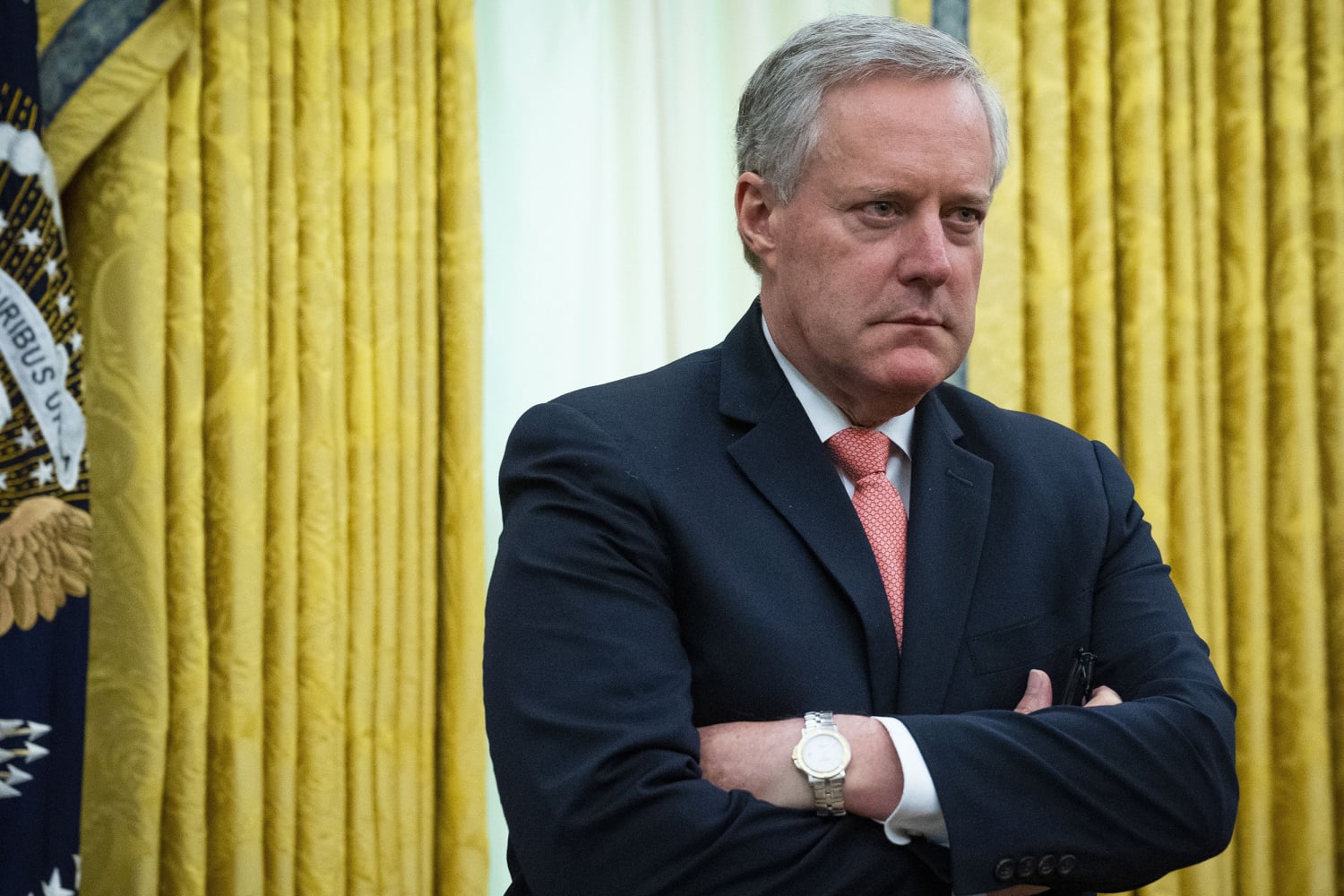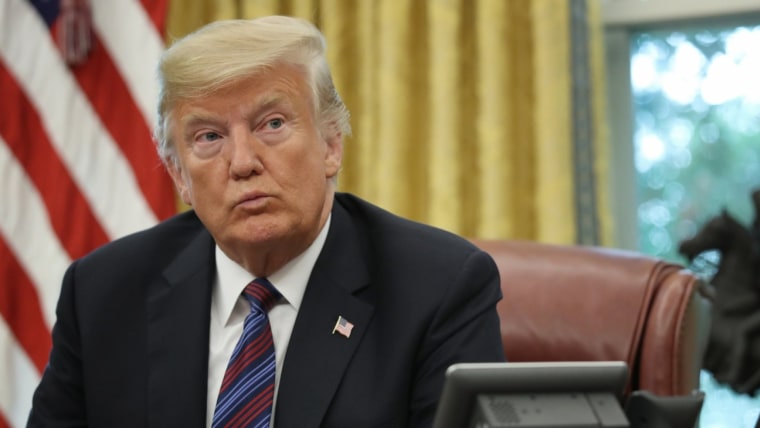WASHINGTON — The House committee probing the Jan. 6 attack on the Capitol wants its upcoming public hearings to be must-see TV, but an avalanche of leaks could just as easily make them a bust.
So much about the failed coup is already known that many Americans may see no compelling reason to watch.
Text messages published recently by news outlets revealed how then-President Trump’s allies contrived to keep him in power after his defeat in the 2020 election. Recordings of House Republican leader Kevin McCarthy’s private phone calls showed just how alarmed he was by Trump’s actions. A book by Bob Woodward and Robert Costa publicized the dubious legal theories that Trump advisers relied on as they worked to overturn the election results.
As with any good story, a congressional hearing of historic proportions needs its share of surprising twists to captivate viewers. Consider Watergate, when a witness doomed Richard Nixon’s presidency in 1973 by testifying that he had been taping his conversations in the White House.
A distinct challenge for the Jan. 6 committee, in an era when secrets are harder to protect, is that its findings may sound like a rehash. Asked if he worried that the public hearings could fizzle due to the torrent of leaks, the committee chairman, Rep. Bennie Thompson, D-Miss., said: “Absolutely.”
“I would hope members of the committee, and staff, understand the charge that we have as a committee and how important it is to our democracy,” he continued. “To leak information in advance of the hearings or a final report is [damaging] to the work product. But I think there is still so much that we have as a committee that the leaks would not mitigate the impact.”
A ritual parlor game in Washington is figuring out the identity of leakers: Who is disclosing material that the Jan. 6 committee collected as part of its investigation? Are the leaks coming from inside the committee or outside? CNN alone has published reams of text messages that Mark Meadows, a Trump White House chief of staff, turned over to the panel.
“The leaks discredit things,” said Ty Cobb, who represented the Trump White House in the Russia investigation.
The committee and its members continue to insist they’re not behind the leaks and have refused to confirm the validity of Meadows’ text messages after they were published.
Thompson said he has “no earthly idea” who is slipping material to news outlets but added he’s none too happy about it. “I would hope members of the committee, and staff, understand the charge that we have as a committee and how important it is to our democracy,” he said. “To leak information in advance of the hearings or a final report is [damaging] to the work product.”
Rep. Jamie Raskin, D-Md., a member of the nine-person committee, also said he didn’t know who was responsible, though he sees a potential upside.
“I have no idea where these leaks are coming from,” Raskin said. “But they’re definitely whetting the public’s appetite for the hearings, because we’re going to tell a far more systematic and coherent story than the random leaks that are getting out, which obviously just contain a small portion of the information that we have.”
I have no idea where these leaks are coming from. But they’re definitely whetting the public’s appetite for the hearings.
Rep. Jamie raskin, D-Md. said
A committee aide said the leaks are “unauthorized,” meaning that the panel isn’t deliberately handing its work product to select news outlets for its own strategic purposes.
The guessing game has touched off speculation that the leaks may be coming from Trump world — a geyser of unapproved disclosures flowed when he was in power— in a bid to undermine the committee’s efforts. But there has been no evidence to support that conjecture.
From the start, the committee has mulled over how to release its findings in a way that makes the deepest impression on Americans who have plenty of other things on their minds.
“I don’t get questions about this [Jan. 6] at home right now,” Rep. Kelly Armstrong, R.-N.D., said in an interview. Jan. 6 was “a terrible day, and it deserves to be treated in the appropriate context, but there are a lot of other things going on in North Dakota and across the country right now, and whatever you say about this, it’s not new. … That’s the reality that they [committee members] are going to be facing going forward.”
When the committee started work last summer, some staff met privately with veterans of previous investigations to ask for advice. A lawyer for a past Democratic administration suggested that it put out fresh material on a rolling basis to pique the public’s interest and make sure people stay engaged.
The committee took a different path, envisioning blockbuster hearings after the investigation wrapped up. A series of eight separate hearings are now set to begin on June 9. Some will air in prime time, with a written report coming in the fall.
“They needed to keep this front-and-center, and the information has come out through leaks,” the lawyer from a previous administration said, speaking on condition of anonymity to talk more candidly. “There’s no reason it has to be leaked. They have it. They have the authority to just release it. … I worry that [the committee] is making the mistake of putting a big thing together and having a big report at the end that no one reads.”
By holding back its findings, the committee took a gamble. The approach always carried the risk that more information would filter out in advance, undercutting the committee’s efforts to narrate the attempted coup on its own terms.
“If you read a story about a book, and it has all the juicy details, you don’t feel the need to read the book,” a former Trump White House official said, speaking on condition of anonymity to talk more freely.
Depending on their focus, investigations follow different protocols when it comes to leaks. In a criminal probe, strict grand jury secrecy rules tend to tamp down unauthorized disclosures. The commission set up to investigate the September 11, 2001, terrorist attacks needed to be especially careful to avoid them because it was dealing with classified material coming from the nation’s intelligence agencies.
A congressional investigation is a different animal. Capitol Hill is a gossipy place, where information flows freely within an ecosystem of lawmakers, staff, lobbyists and journalists. Every smart phone is also a recorder and camera, making it easier to share confidential witness testimony and documents than it was when Sen. Sam Ervin of North Carolina presided over the Watergate hearings a half-century ago.
“There’s a distinction between Congress’ function and a prosecutor’s function,” said Richard Ben-Veniste, a prosecutor in the Watergate cover-up who was among those whom the committee consulted early on for guidance. “Leaks are anathema to prosecutors, and endemic in congressional hearings.”
Leaks are anathema to prosecutors, and endemic in congressional hearings.
Richard Ben-Veniste, a prosecutor in the Watergate cover-upRichard
One reason to think the committee isn’t the source of the leaks is its makeup. When Congress held hearings into the 2012 attack on the U.S. diplomatic compound in Benghazi, Republicans controlled the House and a full slate of Democrats served on the committee. Democrats had access to the same information as Republicans and could leak it if they chose to
But the Jan. 6 committee has only two Republicans — both of whom are aligned with Democrats in the investigation’s goals. They would seem, then, to have less incentive to leak. The Republican leadership pulled its participation from the committee after House Speaker Nancy Pelosi refused to let them appoint lawmakers who had aggressively argued the 2020 election was stolen.
Ultimately, Ben-Veniste said, the committee will be judged by what it uncovers. Members have heard testimony from hundreds of people while plumbing all aspects of the attack, including how the rioters paid for their trips to Washington and what exactly Trump did in the West Wing when his supporters stormed the Capitol.
Armed with so much information, committee members confidently predict a raft of eye-opening disclosures that no one has yet revealed.
Denver Riggleman, a former Republican congressman who served on the committee’s staff, said in a speech last month that if people knew what he did about Jan. 6, “you would be more shocked than you can imagine.” (Riggleman resigned his position this week to take a job assisting Ukrainian refugees.) A message the committee members hope sinks in, assuming viewers don’t tune out, is that the coup nearly succeeded and could work next time unless the nation is more vigilant.
“People saw a window of opportunity to create mischief,” Thompson, the committee chairman, said. “And, unfortunately, if you repeat a lie often enough, some people start to believe it. That’s where we are.”
“
Source: | This article originally belongs to Nbcnews.com











